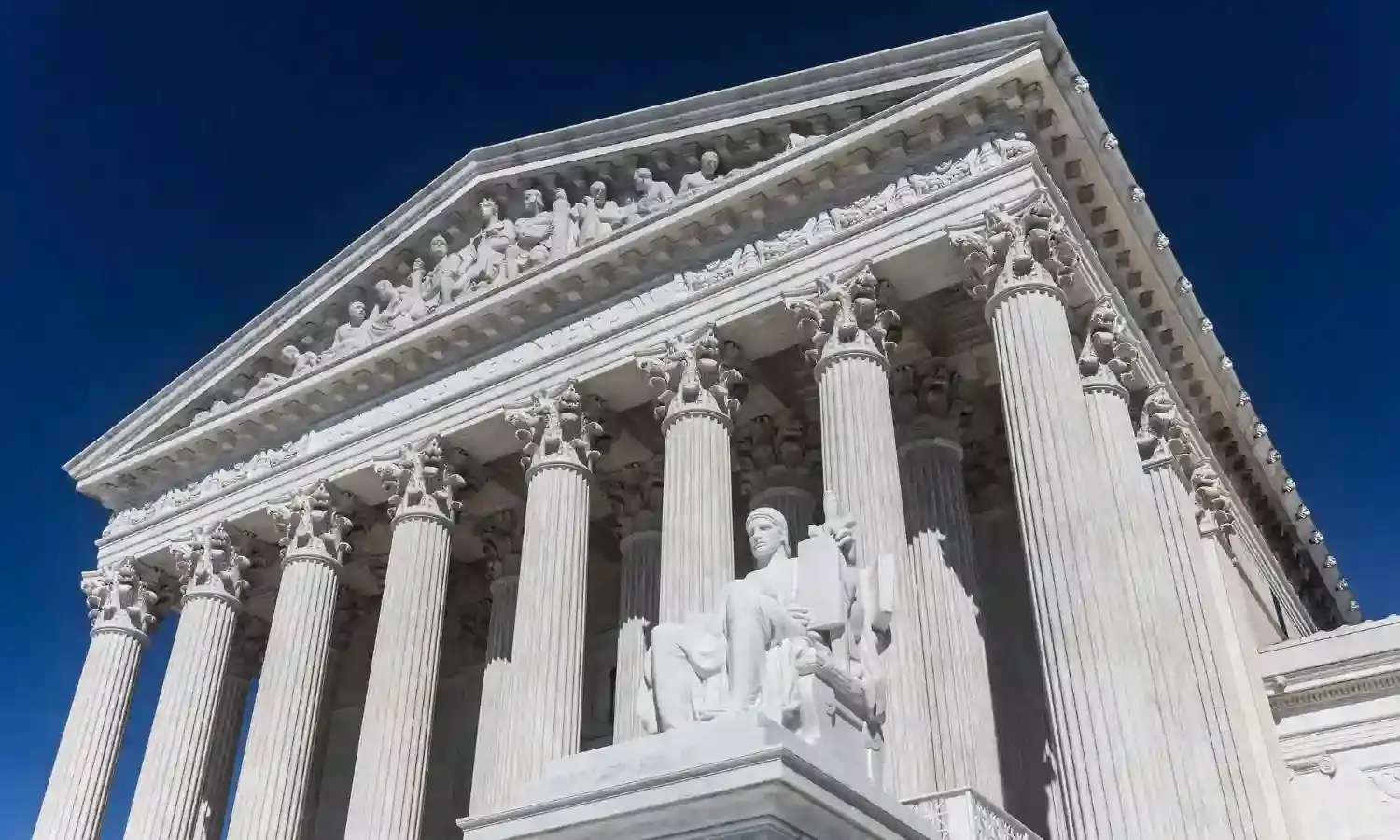US Supreme Court Overturns Century-Old Law On Guns, Holds Americans Have Right To Carry Guns In Public

The US Supreme Court on Thursday overturned a New York law that is more than a century old, which restricted gun carrying rights in the state. The Court observed that Americans have a right to carry guns in public for self-defense purposes.
The Court held that the New York law which required applicants to sufficiently prove 'proper cause' or 'a good reason' to carry the firearms in public violates the second amendment to the US Constitution.
The verdict came with a majority of 6-3, with the Court's conservative Justices in the majority and its liberals in dissent. The majority comprised of Chief Justice John Roberts, Justice Clarence Thomas, Justice Samuel Alito, Justice Neil Gorsuch, Justice Brett Kavanaugh, and Justice Amy Coney Barrett while Justice Stephen Breyer, Justice Sonia Sotomayor, and Justice Elena Kagan dissented.
The Court also opined that the state can continue to make people apply for a licence to carry a handgun and can put limitations on who qualifies for a permit and where a weapon can be carried. However, residents of New York would not be required to provide a particular reason as to why they wish to carry a gun in public.
However, the ruling does not touch upon the law that was recently passed in the New York in connection with Buffalo grocery store shooting that took place on May 14, 2022 in New York where ten black people were killed and three others were injured. The new law has banned anyone under the age of 21 years from buying and possessing a semi-automatic rifle, among other things.
The Courts have also suggested that a state can prohibit the carrying of guns altogether in 'sensitive places.' Justice Thomas who authored the majority opinion, held that historical records highlighted upon legislative assemblies, polling places and courthouses could also be 'sensitive places.'
Justice Thomas also noted that Courts can use analogies to those historical regulations of sensitive places to ascertain those modern regulations restricting the guns in new and analogous sensitive places are constitutionally permissible.
"The constitutional right to bear arms in public for self-defense is not "a second-class right, subject to an entirely different body of rules than the other Bill of Rights guarantees, the constitutional right to bear arms in public for self defense is not "a second-class right, subject to an entirely different body of rules than the other Bill of Rights guarantees. We know of no other constitutional right that an individual may exercise only after demonstrating to government officers some special need. That is not how the First Amendment works when it comes to unpopular speech or the free exercise of religion. It is not how the Sixth Amendment works when it comes to a defendant's right to confront the witnesses against him. And it is not how the Second Amendment works when it comes to public carry for selfdefense" noted Justice Thomas.
Justice Thomas also wrote that from now on Courts can uphold regulations only if the Government can prove they fall within traditionally accepted limits.
Justice Breyer, in his dissent, noted that gun violence has taken a significant number of lives in the US this year. "Since the start of this year alone, there have already been 277 reported mass shootings - an average of more than one per day," the Judge held.
Justice Breyer while dissenting, also noted, "And mass shootings are just one part of the problem. Easy access to firearms can also make many other aspects of American life more dangerous."
"In my view, when courts interpret the Second Amendment, it is constitutionally proper, indeed often necessary, for them to consider the serious dangers and consequences of gun violence that lead States to regulate firearms. The Second Circuit has done so and has held that New York's law does not violate the Second Amendment. See Kachalsky v. County of Westchester, 701 F. 3d 81, 97–99, 101 (2012). I would affirm that holding. At a minimum, I would not strike down the law based only on the pleadings, as the Court does today—without first allowing for the development of an evidentiary record and without considering the State's compelling interest in preventing gun violence. I respectfully dissent," Justice Breyer held.
President Joe Bidden said he was "deeply disappointed" by the Supreme Court's decision, which he said 'contradicts' both common sense and the Constitution, and should trouble us all."
In the meanwhile, on Friday, the US Congress passed the first major gun law in decades, which will make it difficult for young people to buy guns. It empowers authorities to deny firearms to domestic abusers and temporarily take guns from people judged to be dangerous.
Click here to read/download the Judgment

